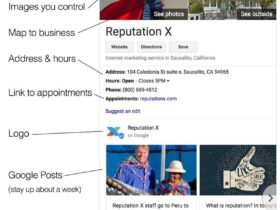Ever feel like someone in your life thrives on chaos, always stirring the pot just when things seem calm?
Drama-loving toxic people have a knack for disrupting peace, often leaving others emotionally drained. While they may not be overtly abusive, their actions can erode your well-being over time.
But here’s the kicker — their behavior isn’t always obvious at first.
It can start with subtle jabs, manipulative comments, or unnecessary conflicts that slowly escalate.
In this article, we’ll expose the telltale signs of these drama-driven personalities so you can spot them early and protect your peace.
1) They thrive on conflict
Toxic individuals who love drama are masters at creating conflict, and it doesn’t always have to be a grand spectacle. It can begin subtly and gradually escalate over time.
You might notice that they often pick fights over the smallest issues, turning a minor disagreement into a full-blown argument. They might blow things out of proportion or misinterpret your words intentionally just to stir the pot.
In other situations, they may play the victim card, making you feel guilty for standing up for yourself or questioning their behavior.
They might also pit people against each other, spreading rumors or sharing sensitive information just to instigate a fight.
These individuals thrive on chaos and disruption. The more conflict there is, the more they feel at home.
2) They crave attention
These individuals have a deep-seated need for attention. However, they won’t always seek this in a healthy or constructive way.
They might make every conversation about them, turning even the most unrelated topics into stories about their own experiences or challenges.
When the spotlight shifts away from them, they might disrupt the conversation or introduce a controversial topic just to bring the focus back onto themselves.
They also have a knack for turning even minor incidents into major crises.
This could be as simple as creating a scene over a misplaced item or as complex as claiming a health scare just to garner sympathy and concern.
The constant need for attention can be emotionally exhausting for those around them.
3) They appear charismatic
Interestingly, they can be incredibly charming and charismatic. This might seem odd given their penchant for conflict, but this charisma often serves as a tool for drawing people into their sphere of drama.
They may use their charm to win people over, making them seem like the life of the party or a person everyone wants to be around. This allows them to create a network of people they can involve in their drama when they need to.
Additionally, their charisma can make it difficult for others to see their toxicity. People might overlook their dramatic behaviors, writing them off as quirks or part of their “larger-than-life” personality.
This can make it even more challenging for those around them to recognize and address the damage they are causing.
4) They lack empathy
As harsh as it may sound, a common trait among them is a lack of empathy. They struggle to understand or share the feelings of others, especially when they are the ones causing distress.
They’re often so wrapped up in their own world of drama that the feelings of others become an afterthought.
They may belittle your problems or ignore your feelings, especially if acknowledging them would mean stepping out of the spotlight.
Their lack of empathy can also make them dismissive of the harm they’re causing. They might laugh off your complaints or tell you you’re overreacting.
5) They may be dealing with their own insecurities
It’s important to remember that toxic people who thrive on drama often have their own struggles too.
Many times, their dramatic behavior is a coping mechanism for dealing with deep-seated insecurities or unaddressed emotional trauma.
Perhaps they use drama to distract themselves from their own feelings of inadequacy or fear. Or they might create chaos to avoid confronting painful experiences or emotions.
This doesn’t excuse their toxic behavior, but understanding this can help you approach the situation with empathy.
It’s a reminder that behind every action, there’s a cause, and sometimes, the person causing pain is also in pain themselves.
6) They’re experts at manipulation
We’ve all likely come across a master manipulator at some point in our lives, and these individuals often fit this bill perfectly. They know exactly what buttons to push to get the reactions they want.
You might notice them twisting your words, making you doubt your own memories or judgement – a tactic known as gaslighting.
Or they may guilt-trip you into doing things their way, making you feel selfish for prioritizing your own needs.
They’re also skilled at playing the victim, making it seem like they’re always the one being wronged.
This manipulation not only fuels their love for drama but also makes it difficult for you to stand up against their toxic behavior.
7) They have a flair for theatrics
Life for them can often feel like a never-ending soap opera, and they’re always ready to take center stage.
They might exaggerate stories for effect, adding unnecessary details or dramatic pauses to hold your attention. Or they may react dramatically to minor inconveniences, turning a spilled cup of coffee into a three-act tragedy.
While this can be exhausting in the long run, it can also add an element of unexpected humor to your interactions with them.
After all, who needs television when you have a real-life drama queen or king in your midst? Just remember to take it with a pinch of salt and not get too swept up in their whirlwind of theatrics.
8) They resist change
Here’s some tough love: they often resist change, especially if it threatens their reign of drama. They’re comfortable in the chaos they create and changing that dynamic can be threatening.
When confronted about their behavior, they might deny it, deflect blame, or make excuses. They might even turn the tables and accuse you of being the problematic one.
If you’re hoping they’ll change on their own, be prepared for disappointment. Change is hard for everyone, but for those who thrive on drama, leaving that behind can be especially challenging.
Closing thoughts: Your wellbeing matters
If there’s one thing to take away from this, it’s that your mental and emotional well-being should always come first. Dealing with a drama-loving toxic person can be draining, and it’s essential to put your own health first.
You can’t change these individuals or temper their love for drama by being more understanding or accommodating. Their behaviors are deeply ingrained and often driven by factors beyond your control.
You are not responsible for managing their drama or fixing their problems. It’s okay to set boundaries, to distance yourself, or even cut ties if necessary.
You deserve relationships that bring you happiness, peace, and respect.
It’s not selfish to prioritize your well-being. You have every right to protect yourself from unnecessary drama and toxicity. You matter, and so does your peace of mind.















